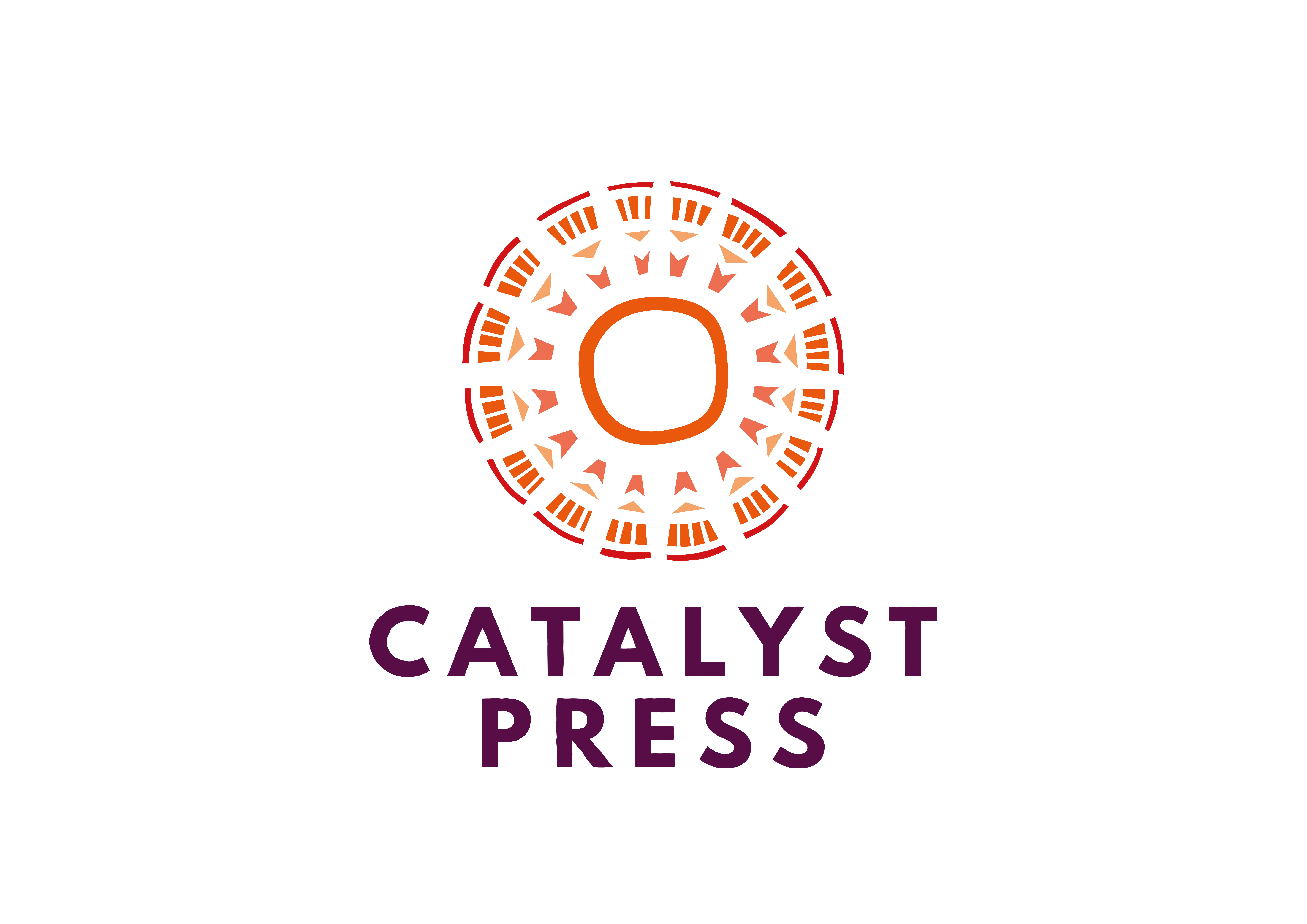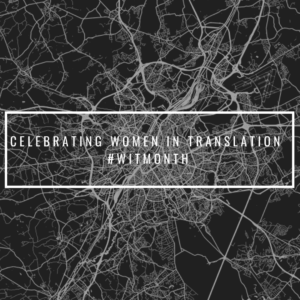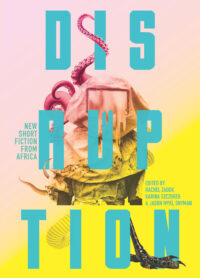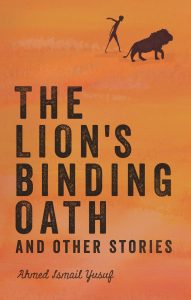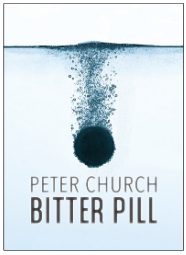This has been a really great Women in Translation Month so far. We’ve been clicking on that #WiTMonth tag and finding some great reads (because when your to-be-read piles looks like the ones at Catalyst HQ, what’s one more?). There are a wealth of amazing voices all over the world waiting for readers. We have a few of our voices to spotlight this month, so be sure to check out our other posts from this, and WiTMonths past, to read about our authors, our translators, and how you can continue to add more world literature by women to your bookshelves.
We’re continuing our celebration by chatting with translator Elsa Silke. Elsa was the translator for Chanette Paul’s continent-hopping thriller Sacrificed. She is an accomplished translator who has translated works by Ingrid Winterbach, Irma Joubert, and in 2006, she was awarded the SATI/Via Afrika Prize for outstanding translation in fiction for her translation of This Life by Karel Schoeman. We talked to Elsa about her background, translating Sacrificed, and how translated works enrich readers. (Check out this three-chapter excerpt (PDF) from the novel!)
How did you come to working in translation?
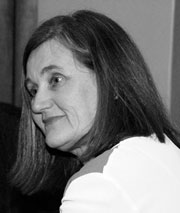
Photo by Naomi Bruwer
After many years of teaching high-school English, I enrolled for an M Phil degree in Translation at Stellenbosch University. For my thesis I translated and annotated part of an award-winning novel by the renowned Afrikaans author Karel Schoeman. I worked under the guidance of Professors Ilse Feinauer and Marlene van Niekerk, herself an acclaimed novelist.
When the publishing firm Human & Rousseau published my translation, This Life, in 2005, it was the start of my new career as a literary translator. This Life was later published in the US, as was my translation of another award-winning novel by Ingrid Winterbach, To Hell with Cronjé.
What languages do you translate?
I translate from Afrikaans into English and vice versa.
What’s your process like when you approach a new work?
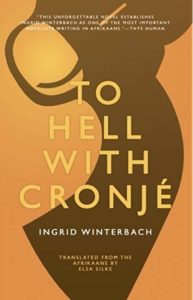
I usually dive straight in. My first draft is very rough. My main object is to get the entire text translated in detail. My second draft takes much longer. This is when I work on finding the right words, change word order and research the subject matter so that I can make the right choices. Next comes a meticulous editing process, which entails a lot of nit-picking and fine-tuning.
At some point I try to distance myself from the text. I try to read it like a reader who comes to the text for the first time. I really can’t say how many times I read and reread the text, but at some point I have to tell myself that I have reached the end of the process, or it would go on interminably. It has to do with the quest for perfection, I suspect, which will always remain an unattainable ideal.
How do you preserve the subtleties of language when you’re translating? Both in terms of the ways that there are oddities/idioms/fun turns-of-phrase in all languages and in preserving the writer’s specific voice?
The author’s voice and his/her signature style should be preserved at all cost, as well as the rhythm of the original work. I have often heard mention of ‘the translator’s voice,’ but I don’t believe the translator should have a discernible voice in the translated text. It is often hard to preserve the subtleties of language.
In regards to the ‘oddities/idioms/fun turns-of-phrase’ that you mention, I usually try to find something in the target language that creates a similar effect. Dialect is particularly hard. Trying to create something similar often results in something artificial or unconvincing. The alternative is to do a ‘smoother’, more generic translation. Obviously something is lost, but unfortunately, it can’t always be avoided.
In a translated work, the reader is enriched by an introduction to a different culture. One way of making it an authentic experience is to retain certain words and phrases in the source language —often denoting concepts that are not easily translated. This is referred to as ‘foreignising.’ In my opinion, the trick is not to overdo it, so that you do not alienate your readers. Personal taste plays a large role in all the choices we make as translators.
In a translated work, the reader is enriched by an introduction to a different culture. One way of making it an authentic experience is to retain certain words and phrases in the source language —often denoting concepts that are not easily translated.
What was this process like while you were working on Sacrificed?
With Sacrificed, there was the usual consideration of how much local content to retain or whether to aim for a more generic translation that makes for an easier reading experience. In this case, however, local flavor abounds, as the events take place in various parts of the world. The Afrikaans text contains words and concepts from French and Belgian, as well as African languages, like Swahili and Lingala. The retention of a number of these terms was almost a foregone conclusion.
I normally work closely with the author if he/she wishes to be involved. In this case, I worked very closely with Chanette Paul. She wanted a specific style and tone – in her own words: direct, tongue-in-cheek, snappy. I tried to accept and incorporate her ideas and suggestions as far as possible. The final product was very much a collaboration between translator and author.
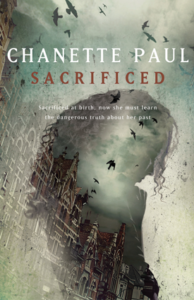 How would you describe the relationship between writing and
translation? What is
the relationship between the two roles within your own work?
How would you describe the relationship between writing and
translation? What is
the relationship between the two roles within your own work?
I am a translator and have not published any work of my own. I have discovered that not all writers can translate, although there are many writers who are also excellent translators. A translator needs to be able to write, however, as it is precisely what you are doing when you recreate a work in another language. You have to be innovative and creative and have a very good grasp of the subtleties of both the source and the target languages.
How can we open ourselves to translated works? Where do you recommend people look for new voices?
To a degree the idea still exists that “it’s better to read the original.” People seem to forget that their only access to the classic French, German and Russian authors of the past, for example, was through translation. Publishers are often understandably cautious about publishing translations, though I think locally the situation has improved in recent years. With modern marketing and communication methods we have access to best-selling authors in any number of languages and countries. I like to read reviews in the media and I look at the top sellers in book stores. And of course, if a book has been awarded a prize, it always inspires me to read it.
What’s something people might find surprising about your work?
I wonder if people are always aware of the hard grind and the many hours spent on doing a translation. I sometimes get the impression that friends and acquaintances don’t regard it as ‘a real job.’ It’s a long process, it takes many hours of writing and rewriting, devising strategies and finding solutions to problems. In fact, it takes so long – if you refuse to be talked into rush jobs – that it is hardly worth your while from a financial point of view. That’s why you have to love what you’re doing. For a literary translator who is trying to establish a name for himself/herself, it’s often hard to get a foot in the door. Because it’s such a costly affair, publishers tend to go with established names. It’s important to network and persevere. Make use of people you meet along the way to introduce or recommend you to authors and publishers.
What’s something you really want people to know about your work?
There is a theory that translators should translate only into their mother tongue. I obviously don’t agree. My mother tongue is Afrikaans, yet the majority of the work I have done has been in English. If you are proficient in more than one language, why limit yourself to translating into a single language? Since my first translation was published I have been invited to translate the most diverse and wonderful texts in both Afrikaans and English. This second career has opened many doors for me and truly widened my horizons. Of course a wonderful bonus is the interesting people I have met along the way: not only authors – in person or through their work – but also publishers, editors . . . the list goes on.
